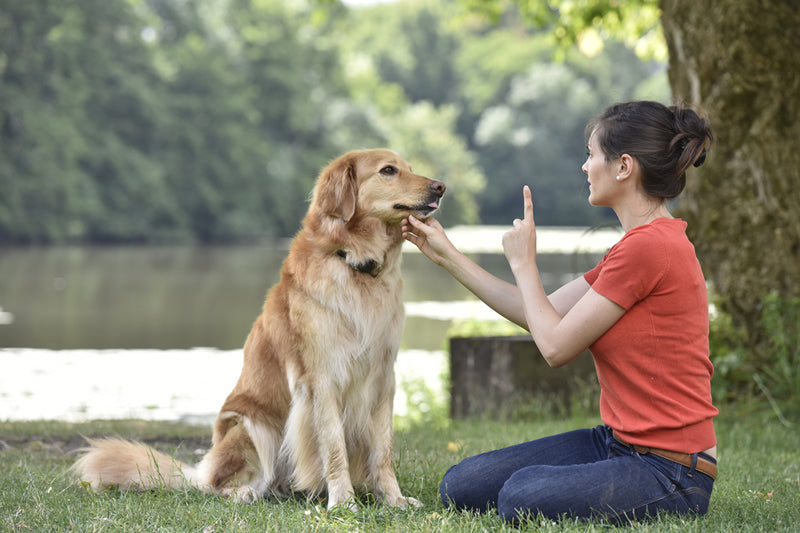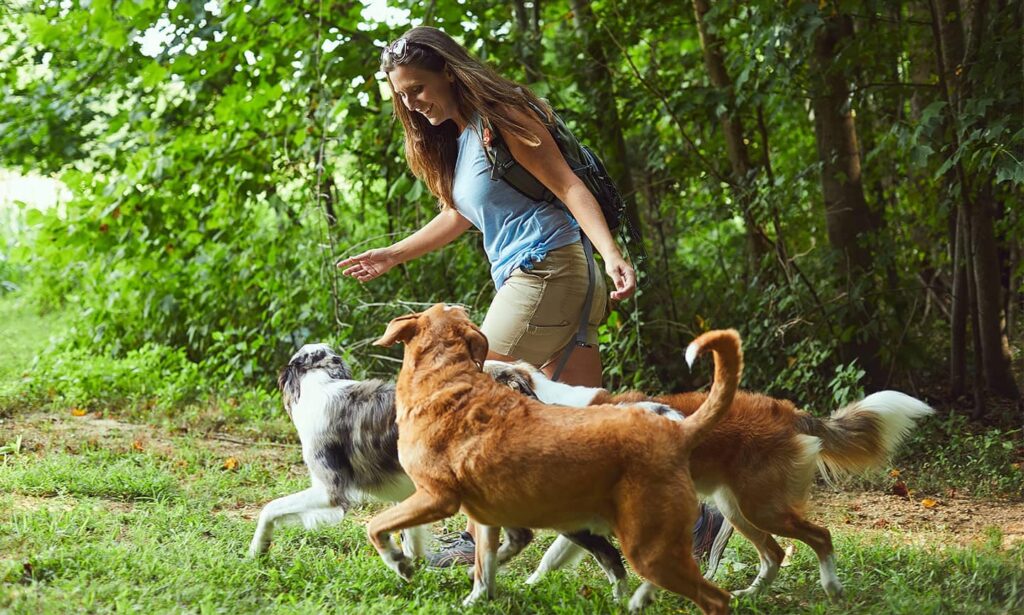
Dog Reactivity Towards Other Dogs: Causes and Solutions
Share
As a health-conscious pet owner, you're likely familiar with the challenges associated with dog reactivity towards other dogs. This condition, often misunderstood, can be distressing both for you and your beloved pet. Reactivity in dogs is a common issue, and it is crucial to address it for the well-being of your furry friend. In this article, we will delve into the intricacies of dog reactivity and explore actionable steps to mitigate it.

What is Dog Reactivity?
Dog reactivity, particularly towards other dogs, refers to a heightened emotional response exhibited by a dog upon seeing or encountering another dog. This could be displayed through behaviors such as excessive barking, lunging, and even growling. Often, these reactions are misconstrued as aggression, but they stem from a dog's fear, frustration, or lack of proper socialization.
Common Causes of Dog Reactivity
Lack of Socialization
Just like humans, dogs require social interaction to develop confidence and appropriate behavioral responses. Lack of socialization during a puppy's formative months can lead to reactivity as an adult dog. If a dog is not regularly exposed to other dogs in a controlled and positive environment, they may become overwhelmed and react defensively or aggressively.
Past Trauma
Another factor contributing to reactivity is past traumatic experiences. A dog that has been attacked or intimidated by other dogs may develop a defensive response as a protective mechanism. Its important to recognize these signs and address them with patience and understanding.
Genetics and Breed Tendencies
Genetics play a significant role in temperament and behavior. Some breeds are naturally more territorial or protective, which can manifest as reactivity under stress. It's essential to acknowledge these traits and work with them rather than against them.
How to Manage Dog Reactivity Towards Other Dogs
Seek Professional Help
Consider consulting a professional dog trainer who specializes in behavioral issues. A professional can provide tailored advice and training techniques based on your dog's specific needs.
Consistent Training
Training plays an integral role in managing and reducing reactivity. Implementing consistent training routines can offer your dog a sense of predictability and security. Using positive reinforcement methods can encourage desired behaviors and create a more balanced emotional state. Explore detailed guides on reactive dog training.
Controlled Socialization
Gradual and supervised exposure to other dogs can help desensitize a reactive dog over time. Start with calm and well-behaved dogs that aren't likely to provoke a strong reaction. This strategy, combined with positive reinforcement, can be effective.
Understand Your Dog's Triggers
Identify what specifically triggers your dog's reactive behavior. Is it the approach of an unfamiliar dog, specific places, or certain situations? Knowing these triggers helps in mitigating unnecessary stress and can guide the training process.
Maintaining Your Dog's Harmless Habits
Maintaining a healthy lifestyle for your dog also includes diet control and regular exercise. To know more about what to feed besides commercial dog foods, visit this guide. Moreover, encouraging healthy habits through regular exercises and playtime strengthens your bond.

Frequently Asked Questions
Why is my dog reactive to other dogs?
Reactivity is often a result of fear, lack of socialization, or past traumatic experiences. Addressing the underlying causes and implementing structured training can help manage these behaviors.
Can any dog become reactive?
Yes, reactivity can develop in any dog regardless of its breed. Factors such as environment, socialization, and temperament contribute to this behavior.
Are there specific breeds more prone to reactivity?
Some breeds are more protective or territorial by nature, which can manifest in reactivity under stress. Understanding your dog's natural tendencies can help in managing their behavior effectively.
Addressing and managing dog reactivity towards other dogs is a journey of understanding, patience, and effort. Through proactive engagement and strategic intervention, you can contribute to your dog's emotional health and improve their interactions, ensuring a harmonious life for both of you. For more training tips and guidance, you can check resources on dog behavior and training here.
This article contains affiliate links. We may earn a commission at no extra cost to you.
